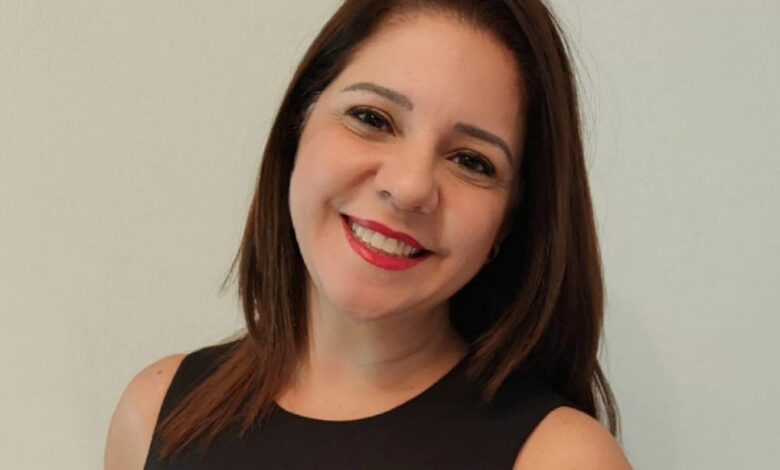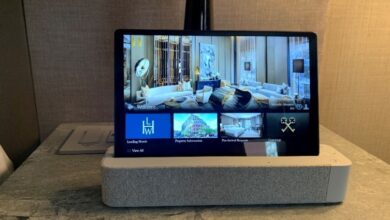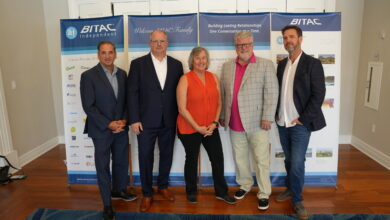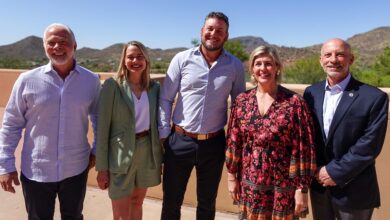
Engaging with Executives: Selina’s Global Chief People Officer on Gender Equality in Hospitality
By David Berman | May 22, 2023
Our Engaging with Executives series consists of one-on-one Q&As with executives around the hospitality industry, breaking down recent trends and news in their companies and the industry as a whole.
Today’s interview is with Cecile Umaña, Global Chief People Officer for Selina. Before joining Selina in 2022, Umaña worked in human resources primarily for tech companies. She brings an almost 30-year career in HR to her role.
In this Q&A, Umaña discusses her first year in the position and Selina’s efforts toward maintaining gender equality throughout company leadership. Women make up 50% of Selina’s employment, 43% of Selina’s management positions and 43% of Selina’s board of directors, according to the company.
Hotel Interactive: What has it been like transitioning to hospitality?
Cecile Umaña: It’s a very different way to see the whole cycle between the employee perspective and also from the guest perspective. When you’re making a computer, when you’re selling a smartphone, it’s different. You really don’t get that sense of how your end consumer is going to appreciate what you offer here. Since it’s hospitality, you get feedback on the spot, right? Whether it’s good or bad, you always get the feedback immediately.
HI: What does your day to day look like as Global Chief People Officer?
CU: Depending on the company, you can call it CHRO or CPO. In any case, what you’re doing is leading the HR function for an organization. I think the interesting part here is having a global view, because being a part of corporate, you have that strategy development, you have the overall umbrella, let’s say, for human resources. However, I’m also involved in the day to day operations that we have in the different countries. So it’s not just sitting in a chair creating strategies, it’s also making sure that the strategies are executed and implemented properly, supporting the local HR teams, as well as the operations teams to ensure that everything is running smoothly, that we’re taking care of our people, whether it’s around compensation plans or development plans, or even recruitment. Everything is done according to the strategy. We’re always looking for ways to improve with the feedback that we get, whether it’s from a candidate or from a connector, or leadership, wherever, but it’s looking for constant ways to evolve and develop.
HI: Next, I’d love to talk about this mission within Selina to maintain gender equality in the c-suite. Is this a reflection of a specific effort that started at any specific date, or has this always been something that Selina has strived to do?
CU: Well, I have to say that I’m very pleased that this is something that has been part of Selina since day one. Having so many women, not only in general in the organization, but in leadership roles, it’s something that has come organically with the growth of the company. I don’t know that there was a specific effort to hire a woman versus a man in certain roles back in the day, right, but they look for the best professionals and that shows the strong women that we have in leadership roles.
To give you an example, we have a chief financial officer that’s a woman. That’s a roll that’s, typically, held by a man. You don’t have so many strong, competent financial leaders out there, and we do have one, and she’s tremendous at what she does. She’s extremely competent, but you can see that balance between the knowledge, the drive and the execution, but also having that emotional intelligence that you can see in many women. Another role that’s typically held by a man is the chief technology officer. That’s also a female. For us having pretty much a 50/50 split between male and female leadership in general, not only in the c-suite, but having so many women in high level roles, I think it speaks about the quality of professionals that we find out there. The ones that have grown from within, I think it also speaks about the effort that Selina makes to develop and raise the bar in terms of the professionalism and what women can offer.
HI: The Castell Project has found that women account for just 30% of all hospitality leadership positions as of 2021. As we’ve established here, Selina is ahead of the curve when it comes to that. What does it mean to you to work for a company that is ahead of that curve and does have this commitment to to maintain that equality?
CU: It really makes you feel very proud. As I said before, I come from the technology industry, which is a very, very male dominated field. It’s difficult for women to cross that line where they’re taking it seriously into account for big roles. I can tell you, I worked for one company where I was the only female in a room with 24 other guys from different countries. At the beginning, it can be very intimidating because they want to establish their strength. And here, I think everything just flows so naturally. The fact that you can have, as I said, any of the female c-levels speak in a presentation and they command the room, like everyone is full attention, whether it’s the CEO or whoever, you can see that they really value their inputs, their insights and what they bring.
So obviously, as a woman myself, it makes me feel very proud to be in a company that values that. Maybe the growth has come organically in having women there, but more and more we’re trying to bring different initiatives to ensure that we continue to foster and develop them so that they can continue to take on bigger projects and bigger roles.
HI: I was actually going to ask a couple questions down the road about any initiatives or programs that Selina has toward these efforts, toward developing women to eventually take on these roles. Could you dive a little bit more into any initiatives and programs that Selina has toward these efforts?
CU: So we do have a diversity committee, although this is not only focused on female (leadership), it’s also focused on any type of diversity. So I think it’s good because we have a large representation — 75% of the committee is female — but we do have members of the LGBTQ+ community there as well. So there’s different initiatives that we want to make sure that we continue to bring across the organization. We’ve also had different coaching programs and mentoring programs in the past and actually this year we’re relaunching, this is more of a retention and recognition for key players, the key connectors program.
So this is just a revamp, where we’re bringing, again, more coaching and development for our female leaders and the people that are part of the program. So we believe definitely that not only should (we) nourish their knowledge and develop them throughout their career in Selina, but also in the past, the company has trained the c-level, including the females in the c-level, to become coaches and mentors themselves. So it’s not only about bringing someone from the outside, but also making sure that the strong leaders that we have in the organization can give back by them becoming certified coaches and mentors for others in the company.
HI: In your observations during your time with Selina, how do you feel the hospitality industry is doing when it comes to gender equality in the c-suite?
CU: Well, actually speaking to headhunters, I’ve learned more about that. I haven’t been a very big traveler myself because of work. I’m used to seeing that the junior staff in the hotels are the ones that are typically female, and then the more senior that you see, whether it’s the general manager of a hotel, whatever, was typically a male. What I see here (at Selina) is, it’s an even split, or in many cases, there’s more females than males. But talking to headhunters, when I’m recruiting for a position, when I’m looking for someone, it’s funny, they tell me that it’s not usual to have so many females in the leadership role.
So it makes it a little bit harder to go and find those strong women, but I think it’s starting to shift. I think that you will see that nowadays women are more vocal, they’re more empowered to go and ask for bigger roles, bigger responsibility, and you see this more and more in many countries, actually. So I think it’s a positive shift to try to make it more balanced out there. Again, I’m happy that in Selina it’s 50/50 pretty much, but you can see out there that there’s still that big gap to cover from females to males in several roles.
HI: What’s next for Selina in its efforts to maintain and promote gender equality in the c-suite?
CU: It’s funny you ask that because one of the things that we’re doing is making sure that we are training … just to make sure that there’s no discrimination. We’re doing a lot of campaigning around discrimination, making sure that we have the right channels to report anything that would make any connection feel uncomfortable. By providing them with that training to make sure that they ask the right questions during an interview, that they provide the right opportunities, our performance assessment process has been strengthened this year again so that we provide equal opportunity, that we measure performance for what it is, that there is no discrimination or bias because someone is a female. I think that the whole process that we’re strengthening in the organization is (that we’re) going to be geared toward making sure that we’re very fair, that we always provide the best opportunities to anyone who wants to grow, but that females feel empowered to continue to take on bigger roles in our organization.
HI: Anything else you’d like to touch on?
CU: I think the fact that you mentioned what’s happening out there, it’s something that’s really worth focusing on, because some countries are making big strides to make sure that they support women, but you can still see in many places, many countries, many industries, that it’s not the case. So I think that initiatives like these will bring attention to the fact that women are super capable to do any role. I think that the fact that in the past women may have been questioned for different reasons, it shouldn’t be the case. Women are qualified, are extremely hard working. They’re very focused on details and very loyal to the companies they work for. So I think it would be a shame that, whether it’s the hospitality industry or other industries, they don’t give women the opportunity to prove and show how good they are.
This interview has been lightly edited for length and clarity.

![Wyndham anniversary[3]](https://www.hotelinteractive.com/wp-content/uploads/2023/06/Wyndham-Anniversary3-390x220.jpg)



Get involved!
Comments